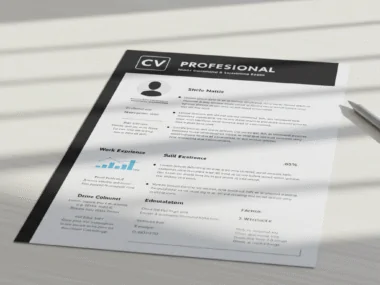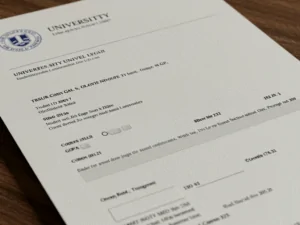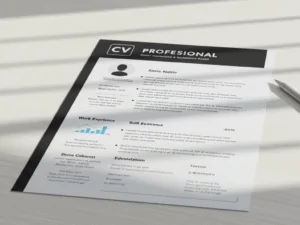Ever dreamed of coding in Toronto’s tech hub or designing apps in Vancouver’s Silicon Valley North? Canada’s booming technology sector is calling, and as a foreigner, you can grab these opportunities with the right plan. Canada’s tech industry is hungry for skilled workers, offering high-paying jobs, permanent residency pathways, and a welcoming culture.
This guide explains how to land technology jobs in Canada, from visas to networking, with a focus on Nigerians and other international professionals. Let’s dive into your path to a tech career in the Great White North!
Why Canada’s Tech Industry Is Perfect for Foreigners
Canada’s tech sector is one of the fastest-growing in the world, contributing $117 billion to the economy in 2025 (per CBRE reports). Cities like Toronto, Vancouver, Montreal, and Waterloo are global tech hubs, home to giants like Microsoft, Google, and Shopify, plus thousands of startups. With an aging population and low birth rate, Canada relies on foreign talent to fill over 100,000 tech job vacancies yearly. Here’s why foreigners, including Nigerians, should jump in:
1. High Demand for Tech Skills
Canada needs software developers, data scientists, cybersecurity experts, and more. Over 50,000 tech workers became permanent residents in 2023 alone, showing the country’s appetite for talent. Roles like full-stack developers, AI specialists, and UX designers are especially hot.
- Average Salaries: $70,000–$150,000 CAD (~₦68–146 million at ₦1,600/CAD), depending on role and experience.
- Top Roles: Software engineer, cloud architect, DevOps engineer, product manager, and tech sales.
Example: A Nigerian developer lands a $90,000 software engineer job in Ottawa, doubling their Lagos salary.
2. Immigrant-Friendly Policies
Canada’s immigration system, like Express Entry and the Global Talent Stream, fast-tracks tech workers for work permits and permanent residency (PR). You don’t always need a job offer to apply, making it easier for foreigners to start.
- Express Entry: Points-based system for PR, favoring tech skills, youth (20–35), and English proficiency.
- Global Talent Stream: Work permits in 10 days for high-skill tech roles.
Benefit: Move to Canada legally and build a long-term career.
3. Multicultural Work Environment
Canada’s diverse workforce welcomes foreigners, with 30% of tech jobs held by immigrants. Nigerians thrive in cities like Toronto, where multicultural communities support your transition.
Example: Chidi, a Nigerian data analyst, joins a Vancouver startup, bonding with colleagues from India and Brazil over shared immigrant experiences.
4. High Quality of Life
Canada offers free healthcare, quality education, and safe cities, ranked among the world’s best for livability. Tech hubs like Waterloo and Montreal balance high salaries with affordable living compared to the U.S.
Benefit: Raise a family or grow your career in a stable, supportive country.
5. Pathway to Permanent Residency
Tech jobs often lead to PR through programs like the Provincial Nominee Program (PNP) or Canadian Experience Class (CEC). PR means access to social benefits and a shot at citizenship.
Example: A Nigerian UX designer secures PR after one year of work in Alberta, enjoying free healthcare and cheaper university fees for their kids.
Top Technology Jobs for Foreigners in Canada 2025
Canada’s tech sector spans software, AI, gaming, and cybersecurity. Here are the most in-demand roles for foreigners, with salaries and skills needed:
- Software Developer/Engineer:
- Salary: $80,000–$120,000 CAD.
- Skills: Python, Java, JavaScript, React, or Node.js.
- Demand: Over 20,000 vacancies in Toronto and Vancouver.
- Data Scientist/Analyst:
- Salary: $85,000–$130,000 CAD.
- Skills: SQL, R, Tableau, machine learning.
- Demand: High in finance and healthcare sectors.
- Cloud Architect:
- Salary: $100,000–$150,000 CAD.
- Skills: AWS, Azure, Google Cloud.
- Demand: Growing with digital transformation.
- Cybersecurity Specialist:
- Salary: $90,000–$140,000 CAD.
- Skills: Ethical hacking, CISSP, network security.
- Demand: Critical for banks and government.
- Product Manager:
- Salary: $95,000–$135,000 CAD.
- Skills: Agile, user research, stakeholder management.
- Demand: High at startups and scale-ups.
- UX/UI Designer:
- Salary: $70,000–$110,000 CAD.
- Skills: Figma, Adobe XD, user testing.
- Demand: Booming in e-commerce and gaming.
- DevOps Engineer:
- Salary: $90,000–$140,000 CAD.
- Skills: Docker, Kubernetes, CI/CD pipelines.
- Demand: Essential for cloud-based firms.
Tip: Check job boards like Canada’s Job Bank or CIPS for IT-specific roles open to foreigners.
Eligibility for Tech Jobs in Canada as a Foreigner
To work in Canada’s tech industry, you need the right qualifications, experience, and legal authorization. Here’s what’s required:
1. Education
- Minimum: Bachelor’s degree in computer science, engineering, or related fields.
- Alternative: Diplomas or bootcamp certifications (e.g., Lambda School) for roles like web development.
- Credential Assessment: Get your foreign degree assessed by WES to confirm it matches Canadian standards.
Example: A Nigerian B.Sc. in Computer Science is assessed as equivalent to a Canadian degree, qualifying for Express Entry.
2. Work Experience
- Minimum: 1–2 years in a tech role (1,560 hours for Express Entry).
- Preferred: 3–5 years for senior roles like cloud architect.
- Proof: Provide employer letters, payslips, or contracts.
Tip: Highlight projects on GitHub or a portfolio to stand out.
3. Language Proficiency
- Requirement: English (IELTS 6.5–7.0) or French (TEF equivalent), especially for Quebec.
- Benefit: Higher IELTS scores (e.g., CLB 9) add up to 136 Express Entry points.
Example: A Nigerian developer scores IELTS 7.0, gaining 68 CRS points and boosting their PR chances.
4. Work Permit or Visa
- Types:
- Employer-Specific Work Permit: Needs a job offer and often a Labour Market Impact Assessment (LMIA).
- Open Work Permit: For spouses of skilled workers or post-graduation work permit (PGWP) holders.
- Global Talent Stream: Fast-track permit for tech roles, no LMIA needed for some.
- Express Entry: Apply for PR without a job offer via Federal Skilled Worker Program (FSWP).
Tip: Use Canada.ca to check visa options based on your country and skills.
5. No Canadian Experience Needed
Unlike some industries, tech employers value foreign experience if backed by strong skills. Open-source contributions or certifications (e.g., AWS Certified Solutions Architect) help bridge the gap.
Example: A Nigerian full-stack developer with three years at Andela lands a Toronto job without Canadian experience.
Immigration Pathways for Tech Workers in 2025
Canada offers tailored programs to attract tech talent. Here’s how to immigrate for tech jobs:
1. Express Entry System
- What: Points-based PR system for skilled workers, including FSWP, CEC, and Federal Skilled Trades Program (FSTP).
- Eligibility: Age (20–35), education, work experience, language skills, and adaptability.
- Process:
- Create an online profile.
- Score high on Comprehensive Ranking System (CRS) (400–500 points for tech workers).
- Get an Invitation to Apply (ITA) for PR.
- Time: 6–12 months.
- Advantage: No job offer needed, but a job offer adds 50–200 CRS points.
Example: A 28-year-old Nigerian data scientist with a master’s, three years’ experience, and IELTS 8.0 scores 480 CRS points, securing PR in eight months.
2. Global Talent Stream (GTS)
- What: Part of the Temporary Foreign Worker Program, offering work permits in 10 days for tech roles.
- Eligibility: Job offer in a high-skill tech occupation (e.g., NOC 21xxx for IT).
- Process:
- Employer applies for GTS (no LMIA for some roles).
- Worker applies for permit.
- Transition to PR via Express Entry after one year.
- Advantage: Fast and employer-driven.
Example: A Nigerian cloud engineer joins a Montreal startup via GTS, getting a work permit in two weeks and PR in 18 months.
3. Provincial Nominee Programs (PNPs)
- What: Provinces nominate tech workers for PR based on local needs.
- Popular Tech PNPs:
- BC PNP Tech: For 27 tech roles in British Columbia, no LMIA needed.
- Ontario Human Capital Priorities: Targets tech workers in Express Entry pool.
- Alberta Accelerated Tech Pathway: For 37 tech occupations with job offers.
- Benefit: Adds 600 CRS points for Express Entry.
Example: A Nigerian product manager gets nominated by BC PNP, boosting their CRS from 420 to 1,020, guaranteeing PR.
4. Start-Up Visa (SUV)
- What: PR for tech entrepreneurs with innovative business ideas.
- Eligibility:
- Support from a designated Canadian investor (e.g., angel investor or venture capital fund).
- IELTS 5.0 or higher.
- Sufficient funds to settle.
- Process: Apply with a business plan; get PR in 12–18 months.
- Advantage: No job offer needed; ideal for startup founders.
Example: A Nigerian AI startup founder secures $200,000 from a Canadian investor, gaining PR and launching their business in Waterloo.
5. Quebec Immigration Pilot for Tech Workers
- What: Targets AI and IT professionals for PR in Quebec.
- Eligibility:
- Job offer or two years’ experience in 10 IT roles (e.g., software developer).
- Education equivalent to a Quebec bachelor’s.
- Advantage: No job offer needed for experienced workers.
Tip: Learn French to boost your chances in Quebec.
How to Find Tech Jobs in Canada as a Foreigner
Landing a tech job requires strategy. Here’s a step-by-step guide:
Step 1: Research the Job Market
- Tech Hubs:
- Toronto: Hosts Microsoft, Google, Shopify; 20,400 tech workers added in 2020–2025.
- Vancouver: Amazon, EA Games; 40% tech growth in five years.
- Montreal: AI hub with Ubisoft, Mila; affordable living.
- Waterloo: Startup ecosystem, home to BlackBerry and Communitech.
- Job Boards:
- Job Bank Canada (filters for foreign candidates).
- Indeed Canada, Workopolis, CIPS (IT-specific).
- LinkedIn (follow Canadian tech firms).
- Salary Expectations: Entry-level ($40,600–$60,000); senior ($100,000–$150,000).
Tip: Target provinces with PNPs like BC or Ontario for easier immigration.
Step 2: Build a Canadian-Style Resume
- Format: 1–2 pages, no photo, focus on achievements.
- Keywords: Match job descriptions (e.g., “Python developer with 3+ years’ experience”).
- Skills: List frameworks (Django, React), tools (Git), and certifications (AWS, PMP).
- Portfolio: Include GitHub, Behance (for designers), or a personal website.
Example: A Nigerian developer tailors their resume for a Toronto job, highlighting a fintech project that saved $50,000, landing an interview.
Step 3: Network Like a Pro
- LinkedIn: Connect with Canadian recruiters, join groups like “Canada Tech Jobs.”
- Events: Attend virtual job fairs (e.g., Tech Talent Canada) or meetups via Meetup.com.
- Referrals: Ask colleagues or alumni in Canada to refer you; referrals boost hiring chances by 50%.
- Mentorship: Join programs like CareerEdge for newcomer internships.
Example: A Nigerian cybersecurity specialist connects with a Montreal recruiter on LinkedIn, securing a job offer after a virtual coffee chat.
Step 4: Secure a Job Offer
- Apply Strategically: Focus on firms hiring foreigners (e.g., Shopify, RBC).
- Interview Prep:
- Study the job description.
- Practice STAR method (Situation, Task, Action, Result).
- Show cultural fit (e.g., adaptability to Canadian workplace norms).
- LMIA Jobs: Look for employers with LMIA approval on Canada Career Site.
Tip: Highlight remote work experience, as many Canadian firms support hybrid roles.
Step 5: Apply for a Work Permit
- With Job Offer:
- Employer applies for LMIA (if needed) or GTS.
- You apply for an employer-specific permit via IRCC.
- Without Job Offer:
- Use Express Entry or PNP to enter as a PR candidate.
- Apply for open work permits if eligible (e.g., spouse of a skilled worker).
Example: A Nigerian DevOps engineer gets a Vancouver job offer, applies for a GTS permit, and starts work in three weeks.
Tips for Success in Canada’s Tech Industry
- Upskill Constantly:
- Take free courses on Coursera or Udemy (e.g., AWS Cloud Practitioner).
- Earn certifications like Google Data Analytics or CompTIA Security+.
- Master English or French:
- Practice IELTS with apps like Duolingo or coaching centers in Nigeria (₦250,000 for prep).
- Learn basic French for Quebec jobs via Alliance Française.
- Understand Canadian Workplace Culture:
- Be punctual, collaborative, and proactive.
- Avoid hierarchical communication; Canadians value openness.
- Build a Portfolio:
- Showcase projects on GitHub, Dribbble, or a personal site.
- Include open-source contributions or hackathon wins.
- Leverage Recruitment Agencies:
- Agencies like Randstad Canada specialize in tech roles for foreigners.
- Avoid scams; use NAICOM-regulated firms.
- Join Bridging Programs:
- Programs like ACCES Employment offer job search training for newcomers.
- Federal Internship for Newcomers (FIN) provides tech internships.
- Prepare Financially:
- Save ₦5–10 million for initial costs (flights, rent, IELTS).
- Show proof of funds for PR ($13,757 CAD for one person).
Example: A Nigerian AI specialist completes a Coursera ML course, adds it to their LinkedIn, and gets noticed by a Toronto recruiter.
Challenges and Solutions
- High Competition: Stand out with certifications, portfolios, and networking. Apply to smaller startups for less competition.
- No Canadian Experience: Highlight transferable skills and volunteer for open-source projects.
- Credential Recognition: Use WES ($200 CAD) to validate your degree early.
- Language Barriers: Practice English daily; join Toastmasters for public speaking.
- Job Offer Delays: Apply to multiple roles and use job boards like Moving2Canada.
Why 2025 Is the Best Time for Tech Jobs in Canada
- Labor Shortages: Over 1 million job vacancies, with tech leading the pack.
- Tech Talent Strategy: Canada’s new immigration pathways target 3,500 tech workers yearly.
- Economic Growth: Tech sector grew 54% in Toronto (2020–2025), creating 20,400 jobs.
- Remote Work: Many tech firms offer hybrid roles, easing relocation.
- Diversity Focus: Canada’s inclusive policies support Nigerian and African talent.
Sample Plan for Nigerian Tech Workers
Scenario: Young Professional
- Profile: 30-year-old Nigerian software developer, B.Sc. Computer Science, three years at a Lagos fintech, IELTS 7.0.
- Goal: Land a $85,000 developer job in Toronto and secure PR.
- Timeline:
- June 2025: Take IELTS (₦300,000), assess degree via WES ($200 CAD).
- July 2025: Build portfolio, update LinkedIn, join CIPS.
- August 2025: Apply to 50 jobs via Job Bank, Indeed, and LinkedIn.
- October 2025: Secure job offer from a Toronto startup.
- November 2025: Apply for GTS work permit ($1,000 CAD).
- January 2026: Move to Canada, start job.
- January 2027: Apply for PR via CEC (1 year Canadian experience).
- Costs:
- IELTS: ₦300,000
- WES: ₦320,000 ($200 CAD)
- Work Permit: ₦1.6 million ($1,000 CAD)
- Flights and Settlement: ₦5 million
- Total: ~₦7.2 million
Steps
- Research tech hubs and roles.
- Prepare resume and portfolio.
- Network with Canadian recruiters.
- Apply for jobs and permits.
- Relocate and start work.
Frequently Asked Questions
Do I need a job offer for tech jobs in Canada?
No, programs like Express Entry or Quebec’s tech pilot allow applications without offers, but a job offer speeds up the process.
What’s the easiest tech job to get as a foreigner?
Entry-level roles like web developer or IT support are accessible with 1–2 years’ experience and certifications.
How long does it take to get a work permit?
GTS permits take 10–14 days; employer-specific permits take 1–3 months with LMIA.
Can I move to Canada without tech experience?
It’s harder, but bootcamps or diplomas can qualify you for entry-level roles.
Is French mandatory for tech jobs?
No, English is enough for most cities, but French boosts chances in Quebec.
Final Thoughts
Canada’s tech industry in 2025 is a goldmine for foreigners, offering high-paying jobs, fast-track immigration, and a chance to live in one of the world’s best countries. Whether you’re a Nigerian developer, a data scientist, or a tech entrepreneur, the path to success starts with skills, a strong resume, and the right visa.
Network, upskill, and dive into job boards to land your dream role in Toronto, Vancouver, or beyond. With Canada welcoming over 50,000 tech workers yearly, now’s your time to shine. Ready to code your future in Canada? Check out these resources to start your journey!
Explore More:







